 Prime Minister Mark Carney announced his new cabinet on Tuesday with a speech at Rideau Hall outlining his priorities — and like the speech, which did not mention climate change, the cabinet itself signals a potential shift in a new direction. Carney’s cabinet signals a “potential downgrading” of climate change and environment, says Mark Winfield, a professor of environmental governance at York University. …Carney appointed longtime business executive Tim Hodgson to serve as energy and natural resources minister and Toronto—Danforth MP Julie Dabrusin to serve as minister of environment and climate change. Dabrusin steps into the post held under Trudeau by Steven Guilbeault, who drew the ire of the energy industry and its political allies. Immediately following Dabrusin’s appointment, Alberta Premier Danielle Smith attacked her, too. Smith promptly took to social media after the swearing-in ceremony on May 13 to call Dabrusin “another anti-oil and gas Environment Minister.” [A subscription is required to access this full story]
Prime Minister Mark Carney announced his new cabinet on Tuesday with a speech at Rideau Hall outlining his priorities — and like the speech, which did not mention climate change, the cabinet itself signals a potential shift in a new direction. Carney’s cabinet signals a “potential downgrading” of climate change and environment, says Mark Winfield, a professor of environmental governance at York University. …Carney appointed longtime business executive Tim Hodgson to serve as energy and natural resources minister and Toronto—Danforth MP Julie Dabrusin to serve as minister of environment and climate change. Dabrusin steps into the post held under Trudeau by Steven Guilbeault, who drew the ire of the energy industry and its political allies. Immediately following Dabrusin’s appointment, Alberta Premier Danielle Smith attacked her, too. Smith promptly took to social media after the swearing-in ceremony on May 13 to call Dabrusin “another anti-oil and gas Environment Minister.” [A subscription is required to access this full story]


 MONTREAL – Academics at McGill University in Montreal are providing the U.S. scientific community a platform to protect climate research under attack. Six months ago, researchers at McGill University’s Desautels Faculty of Management launched the Sustainability Academic Network — SUSANHub.com — a database that centralizes climate research and data. “We initially created this platform to connect researchers and professionals in sustainable development and climate change,” said Juan Serpa, a professor at the Desautels Faculty of Management, describing the platform as a kind of “LinkedIn” for the field. But at a time when the administration of United States President Donald Trump is firing climate researchers, banning certain words from scientific articles, cutting funding for environmental research, threatening to withdraw financial support from universities, and deleting scientific reports from government websites, the McGill platform has taken on a different significance. “The goal is to protect scientific data against threats from the U.S. government,” Serpa said.
MONTREAL – Academics at McGill University in Montreal are providing the U.S. scientific community a platform to protect climate research under attack. Six months ago, researchers at McGill University’s Desautels Faculty of Management launched the Sustainability Academic Network — SUSANHub.com — a database that centralizes climate research and data. “We initially created this platform to connect researchers and professionals in sustainable development and climate change,” said Juan Serpa, a professor at the Desautels Faculty of Management, describing the platform as a kind of “LinkedIn” for the field. But at a time when the administration of United States President Donald Trump is firing climate researchers, banning certain words from scientific articles, cutting funding for environmental research, threatening to withdraw financial support from universities, and deleting scientific reports from government websites, the McGill platform has taken on a different significance. “The goal is to protect scientific data against threats from the U.S. government,” Serpa said. A Canadian carbon credit firm is seeking more than US$40 million in damages in a lawsuit against its former CEO and several ex-directors and associates over alleged unjust enrichment, fraud, and breach of fiduciary duty. A statement of claim filed in the Ontario Superior Court by Carbon Streaming Corporation describes diverted six-figure advisory fees, as well as lavish trips and retreats without a business purpose, over the span of multiple years. Toronto-based Carbon Streaming provides capital to carbon capture projects around the world via streaming or royalty agreements for carbon credits, which they sell to buyers looking to offset emissions, or other investors. …Last week, Carbon Streaming filed a lawsuit with the Ontario Superior Court of Justice against founder, former CEO and company director Justin Cochrane, as well as several other past executives, directors, consultants, and affiliated entities.
A Canadian carbon credit firm is seeking more than US$40 million in damages in a lawsuit against its former CEO and several ex-directors and associates over alleged unjust enrichment, fraud, and breach of fiduciary duty. A statement of claim filed in the Ontario Superior Court by Carbon Streaming Corporation describes diverted six-figure advisory fees, as well as lavish trips and retreats without a business purpose, over the span of multiple years. Toronto-based Carbon Streaming provides capital to carbon capture projects around the world via streaming or royalty agreements for carbon credits, which they sell to buyers looking to offset emissions, or other investors. …Last week, Carbon Streaming filed a lawsuit with the Ontario Superior Court of Justice against founder, former CEO and company director Justin Cochrane, as well as several other past executives, directors, consultants, and affiliated entities.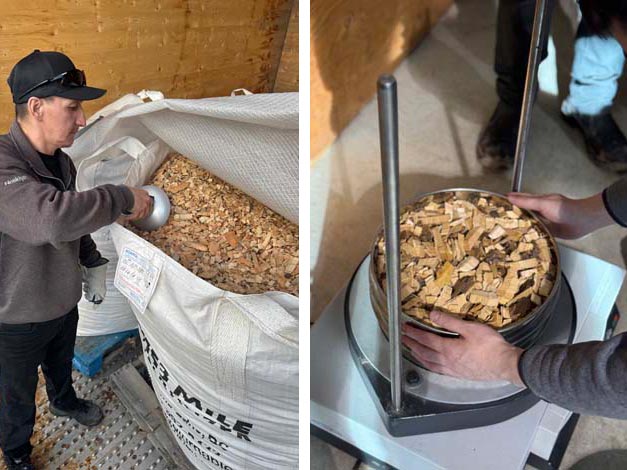
 The Sustainable Biomass Program (SBP) has today announced the publication of two Interim Regional Risk Assessments (RRAs), covering British Columbia and Alberta Forests, Canada (available
The Sustainable Biomass Program (SBP) has today announced the publication of two Interim Regional Risk Assessments (RRAs), covering British Columbia and Alberta Forests, Canada (available 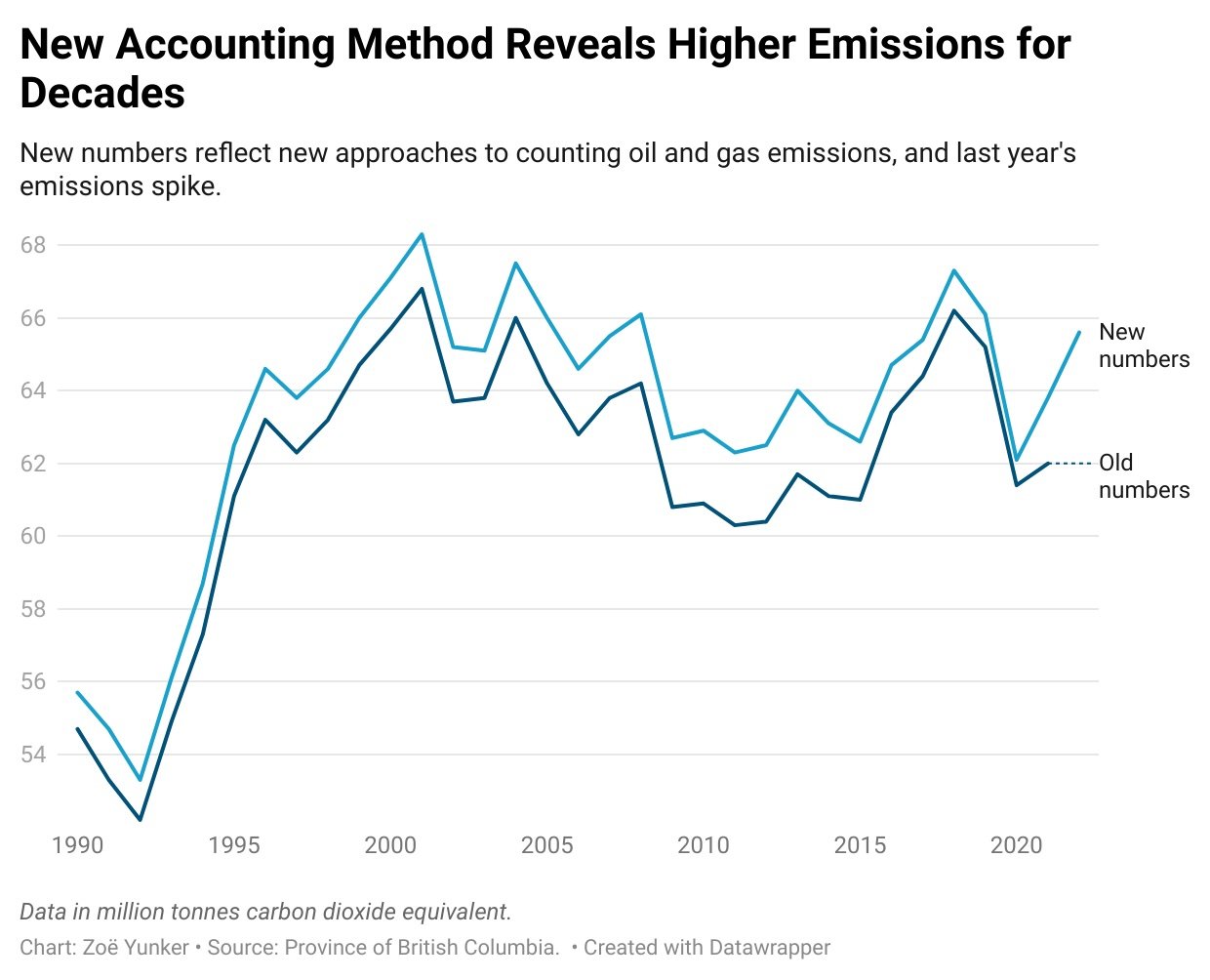
 The
The 
 The BC government says it will only meet half of its 2030 target to lower greenhouse gas emissions. In an annual
The BC government says it will only meet half of its 2030 target to lower greenhouse gas emissions. In an annual  VANCOUVER, BC — Svante Technologies, a leader in carbon capture and removal technology, announced that its joint carbon capture and storage project with Mercer International has advanced to the Front-end Engineering and Design Phase 2 (FEL-2). Also known as Pre-FEED, this phase involves engineering, cost estimation, and risk analysis to evaluate the project’s commercial viability. …The carbon capture project targets biogenic CO2 emissions from Mercer’s Peace River pulp mill, where the biomass is sourced from sustainably managed forests. Advancing to the Pre-FEED stage will support further development of the integrated design, cost estimates, and risk assessments—key steps toward a final investment decision and potential implementation. …Utilizing a Novel Carbon Capture Technology for Commercial Deployment, Svante’s second-generation capture technology maximizes low-grade waste heat from pulp mills, reducing energy consumption and increasing cost-effectiveness.
VANCOUVER, BC — Svante Technologies, a leader in carbon capture and removal technology, announced that its joint carbon capture and storage project with Mercer International has advanced to the Front-end Engineering and Design Phase 2 (FEL-2). Also known as Pre-FEED, this phase involves engineering, cost estimation, and risk analysis to evaluate the project’s commercial viability. …The carbon capture project targets biogenic CO2 emissions from Mercer’s Peace River pulp mill, where the biomass is sourced from sustainably managed forests. Advancing to the Pre-FEED stage will support further development of the integrated design, cost estimates, and risk assessments—key steps toward a final investment decision and potential implementation. …Utilizing a Novel Carbon Capture Technology for Commercial Deployment, Svante’s second-generation capture technology maximizes low-grade waste heat from pulp mills, reducing energy consumption and increasing cost-effectiveness.
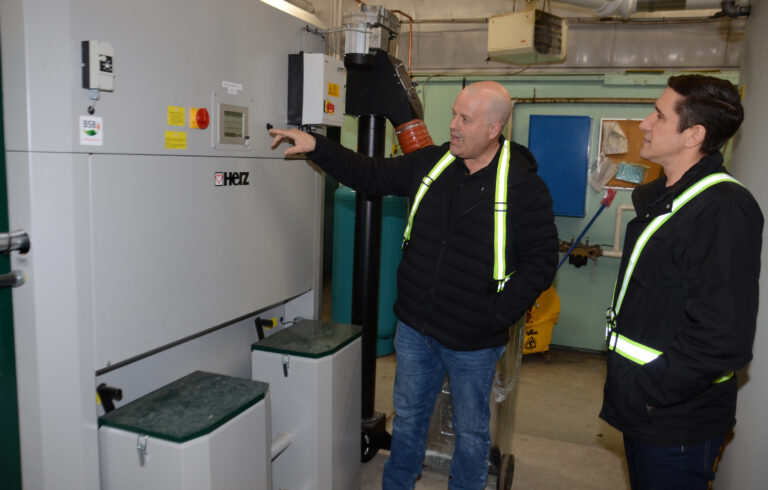
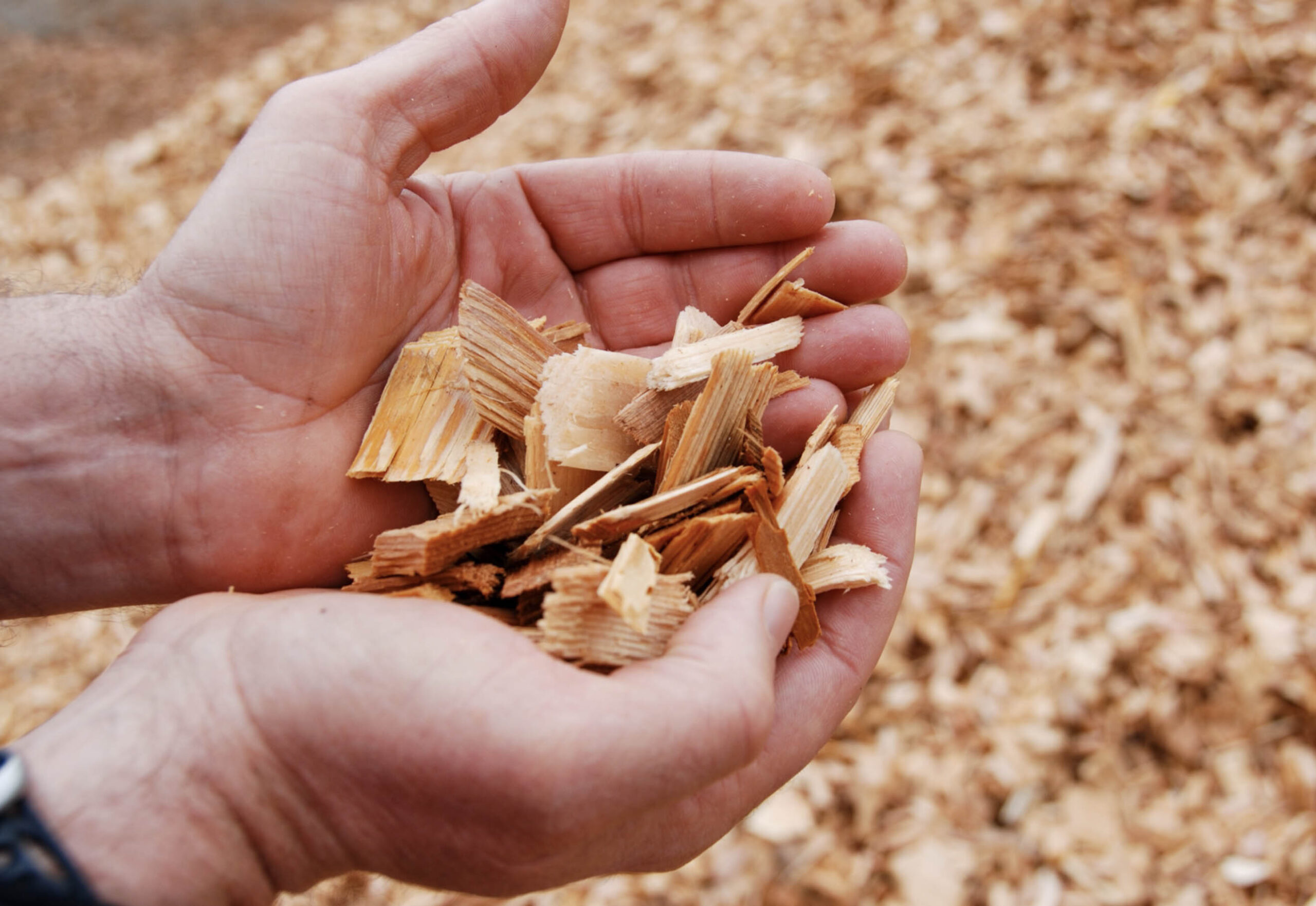
 [Airplanes produce] a lot of emissions. In fact, the airline industry produces more greenhouse gases than many major countries. Most airlines … are pushing for cleaner fuels—and offering passengers the chance to help them offset a flight’s carbon emissions. Book a trip with a big carrier and you might be asked if you want to invest in forest preservation, saving enough trees to soak up your jet-setting’s environmental emissions. But is that really helping the planet or is it just a way for corporations to look better? A new study co-led by researchers at Boston University and the nonprofit Clean Air Task Force has found some of these efforts, known as forest carbon credit schemes, might not be doing much good. After examining the standards-governing programs … researchers recommend a series of new guidelines and improvements to “the carbon market system that would promote reliably high-quality forest carbon credits.”
[Airplanes produce] a lot of emissions. In fact, the airline industry produces more greenhouse gases than many major countries. Most airlines … are pushing for cleaner fuels—and offering passengers the chance to help them offset a flight’s carbon emissions. Book a trip with a big carrier and you might be asked if you want to invest in forest preservation, saving enough trees to soak up your jet-setting’s environmental emissions. But is that really helping the planet or is it just a way for corporations to look better? A new study co-led by researchers at Boston University and the nonprofit Clean Air Task Force has found some of these efforts, known as forest carbon credit schemes, might not be doing much good. After examining the standards-governing programs … researchers recommend a series of new guidelines and improvements to “the carbon market system that would promote reliably high-quality forest carbon credits.”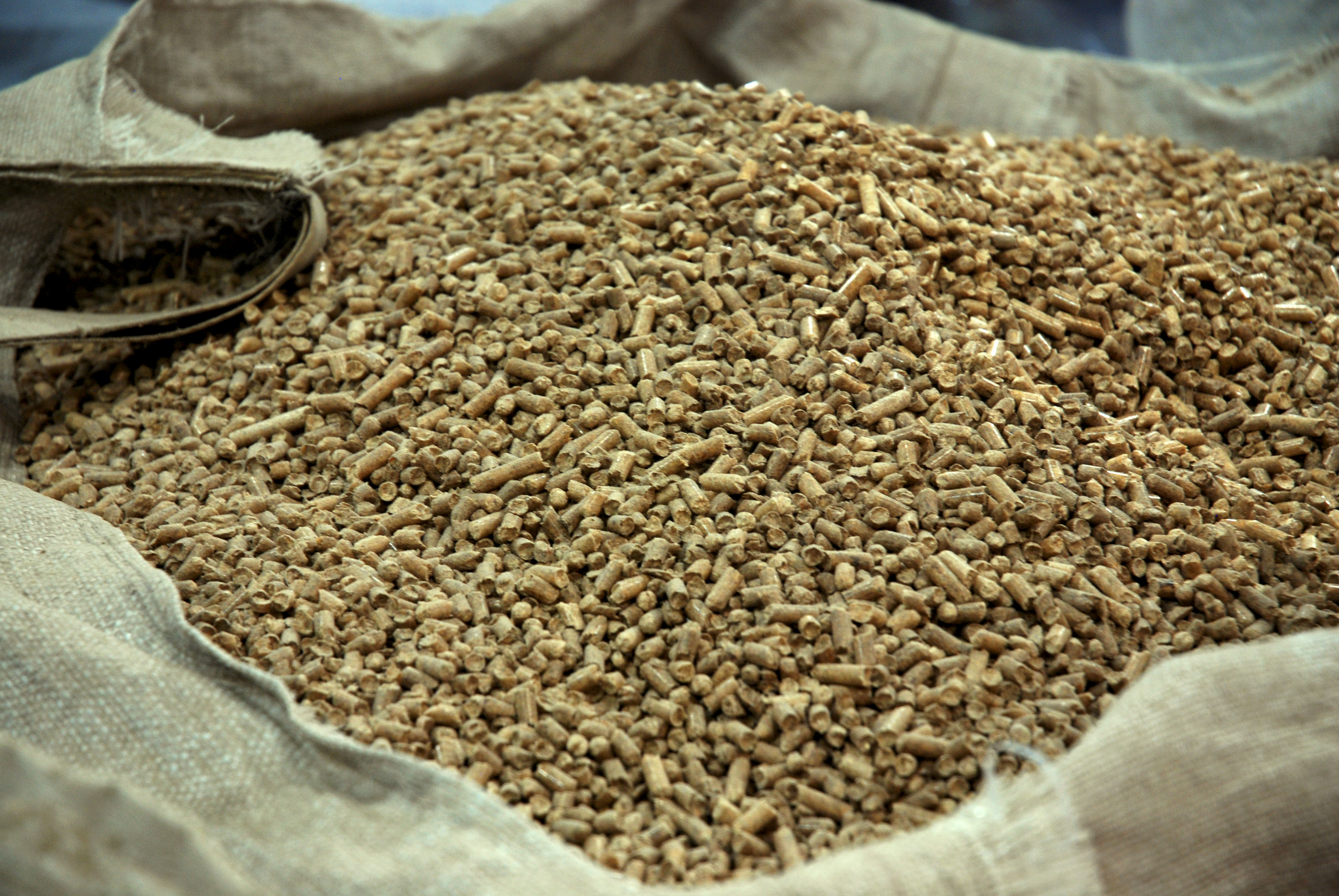 The US agriculture secretary has said the UK could take more US wood pellets as biomass amid ongoing trade talks. Brooke Rollins told reporters the US is ‘100% confident’ that the country’s wood chips adhere to UK sustainability requirements. Rollins met with UK energy secretary Ed Miliband and energy minister Michael Shanks on 13 May. Her visit to London saw her promoting agricultural produce – including US wood pellets. This is despite ongoing questions surrounding the actual sustainability of the biomass sector. In particular, Drax, which is subsidised by the UK taxpayer, has come under scrutiny on several occasions.
The US agriculture secretary has said the UK could take more US wood pellets as biomass amid ongoing trade talks. Brooke Rollins told reporters the US is ‘100% confident’ that the country’s wood chips adhere to UK sustainability requirements. Rollins met with UK energy secretary Ed Miliband and energy minister Michael Shanks on 13 May. Her visit to London saw her promoting agricultural produce – including US wood pellets. This is despite ongoing questions surrounding the actual sustainability of the biomass sector. In particular, Drax, which is subsidised by the UK taxpayer, has come under scrutiny on several occasions. The National Oceanic and Atmospheric Administration will no longer track the cost of climate change-fueled weather disasters, including floods, heat waves, wildfires and more. It is the latest example of changes to the agency and the Trump administration limiting federal government resources on climate change. NOAA falls under the US Department of Commerce and is tasked with daily weather forecasts, severe storm warnings and climate monitoring. It is also parent to the National Weather Service. The agency said its National Centers for Environmental Information would no longer update its Billion-Dollar Weather and Climate Disasters database beyond 2024. For decades, it has tracked hundreds of major events across the country, including destructive hurricanes, hail storms, droughts and freezes that have totaled trillions of dollars in damage. The database uniquely pulls information from the Federal Emergency Management Agency’s assistance data, insurance organizations, state agencies and more to estimate overall losses from individual disasters.
The National Oceanic and Atmospheric Administration will no longer track the cost of climate change-fueled weather disasters, including floods, heat waves, wildfires and more. It is the latest example of changes to the agency and the Trump administration limiting federal government resources on climate change. NOAA falls under the US Department of Commerce and is tasked with daily weather forecasts, severe storm warnings and climate monitoring. It is also parent to the National Weather Service. The agency said its National Centers for Environmental Information would no longer update its Billion-Dollar Weather and Climate Disasters database beyond 2024. For decades, it has tracked hundreds of major events across the country, including destructive hurricanes, hail storms, droughts and freezes that have totaled trillions of dollars in damage. The database uniquely pulls information from the Federal Emergency Management Agency’s assistance data, insurance organizations, state agencies and more to estimate overall losses from individual disasters. 


 FALLON, Nev. – A proposed wood pellet processing plant in Churchill County is facing significant opposition from nearby residents who say it’s a great project in the wrong place. The facility, which would operate 24/7, is being proposed on McLean Road in Fallon. The man behind the proposal, Alex Pedan, is seeking a special use permit to open the plant, but neighbors are raising red flags over concerns about noise, dust, and declining property values. Amber Sanchez lives near the site and says she was notified about the proposal on April 29. She’s concerned that not everyone in her neighborhood received the same letter. …During Wednesday night’s Churchill County Planning Commission meeting, residents filled the room to speak out against the plan. Some said they supported the idea of a wood pellet business — just not in a residential or agricultural area. …In response to community concerns, Pedan claimed the plant’s equipment would be housed indoors, within a sound-insulated structure.
FALLON, Nev. – A proposed wood pellet processing plant in Churchill County is facing significant opposition from nearby residents who say it’s a great project in the wrong place. The facility, which would operate 24/7, is being proposed on McLean Road in Fallon. The man behind the proposal, Alex Pedan, is seeking a special use permit to open the plant, but neighbors are raising red flags over concerns about noise, dust, and declining property values. Amber Sanchez lives near the site and says she was notified about the proposal on April 29. She’s concerned that not everyone in her neighborhood received the same letter. …During Wednesday night’s Churchill County Planning Commission meeting, residents filled the room to speak out against the plan. Some said they supported the idea of a wood pellet business — just not in a residential or agricultural area. …In response to community concerns, Pedan claimed the plant’s equipment would be housed indoors, within a sound-insulated structure.
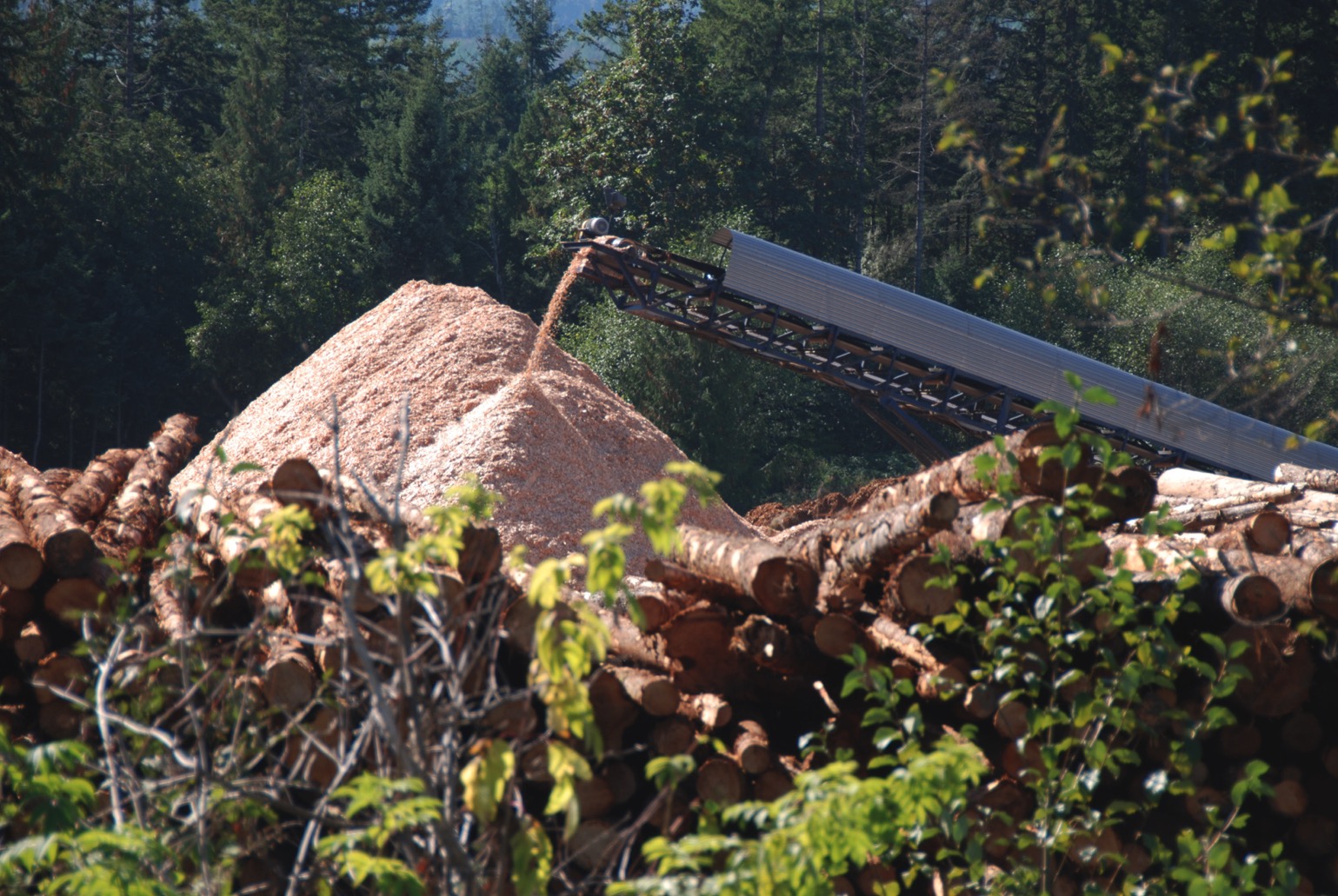 GRAND RAPIDS, Mich. —
GRAND RAPIDS, Mich. — 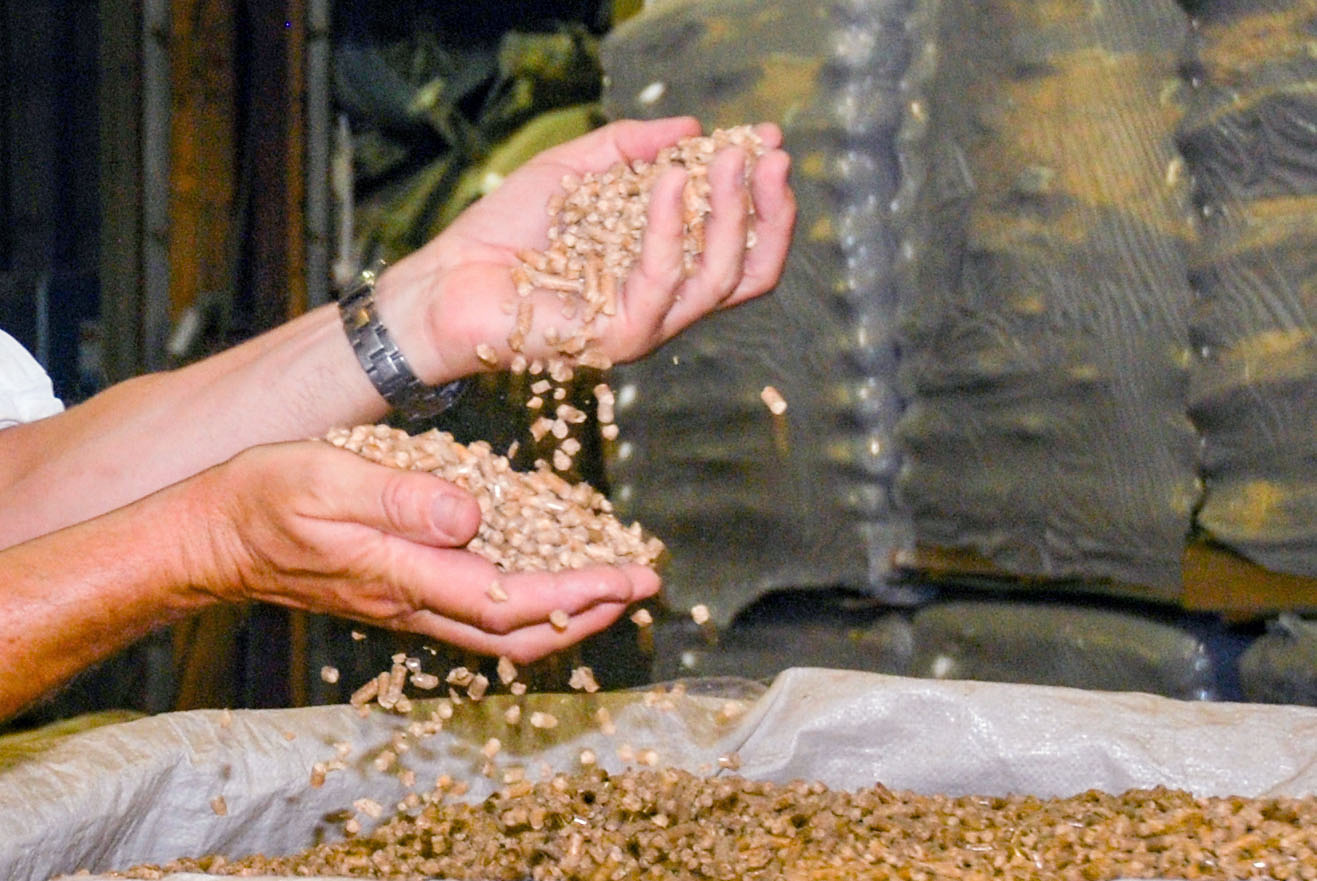 The UK could potentially take more US wood pellets to burn for electricity amid ongoing trade talks, Donald Trump’s agriculture secretary has said. Brooke Rollins, who met with Energy Secretary Ed Miliband and Energy Minister Michael Shanks on Tuesday, said America is “100% confident” that its wood chips meet the UK’s sustainability requirements. Ms Rollins has been promoting US agricultural produce, including American wood pellets, on a visit to London this week as trade talks between the two countries continue following the preliminary deal struck on Thursday. But the biomass sector has long faced accusations of sourcing and burning wood from environmentally important or rare forests. Campaign and media investigations have alleged that Drax, which runs the UK’s biggest power station in Yorkshire, has used wood from environmentally important forests in North America.
The UK could potentially take more US wood pellets to burn for electricity amid ongoing trade talks, Donald Trump’s agriculture secretary has said. Brooke Rollins, who met with Energy Secretary Ed Miliband and Energy Minister Michael Shanks on Tuesday, said America is “100% confident” that its wood chips meet the UK’s sustainability requirements. Ms Rollins has been promoting US agricultural produce, including American wood pellets, on a visit to London this week as trade talks between the two countries continue following the preliminary deal struck on Thursday. But the biomass sector has long faced accusations of sourcing and burning wood from environmentally important or rare forests. Campaign and media investigations have alleged that Drax, which runs the UK’s biggest power station in Yorkshire, has used wood from environmentally important forests in North America.

 Representing 27% of all forests worldwide, boreal forests are the planet’s terrestrial “second lung” after tropical forests. Encircling the North Pole, they span North America, Europe, and Asia, playing a vital role in global carbon sequestration and storage, biodiversity, and supporting societies and economies. Despite their importance, boreal forests do not receive the same visibility and attention among policymakers and the public as their tropical forest counterparts. A new study published by the United Nations Economic Commission for Europe (UNECE), presented today at the United Nations Forum on Forests in New York, highlights the urgent need to increase the understanding of this global “treasure trove” and to safeguard its important contributions… Boreal forests, like other forest biomes, are important to global goals such as the Sustainable Development Goals (SDGs) 8, 12, 13 and 15, the six Global Forest Goals and the Targets of the United Nations Strategic Plan for Forests 2030.
Representing 27% of all forests worldwide, boreal forests are the planet’s terrestrial “second lung” after tropical forests. Encircling the North Pole, they span North America, Europe, and Asia, playing a vital role in global carbon sequestration and storage, biodiversity, and supporting societies and economies. Despite their importance, boreal forests do not receive the same visibility and attention among policymakers and the public as their tropical forest counterparts. A new study published by the United Nations Economic Commission for Europe (UNECE), presented today at the United Nations Forum on Forests in New York, highlights the urgent need to increase the understanding of this global “treasure trove” and to safeguard its important contributions… Boreal forests, like other forest biomes, are important to global goals such as the Sustainable Development Goals (SDGs) 8, 12, 13 and 15, the six Global Forest Goals and the Targets of the United Nations Strategic Plan for Forests 2030.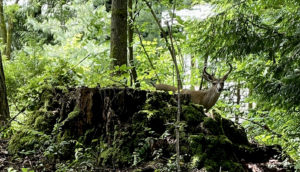 The United Nations Forum on Forests commenced its twentieth session today, as speakers spotlighted the connection between healthy forests and a sustainable future, the increasing threats to this important global resource and the subsequent need to invest in its protection despite a shrinking fiscal space. The Forum will hold its twentieth session from 5 to 9 May in New York. Established in 2000 by the Economic and Social Council, the Forum has universal membership and is tasked with reviewing progress in the implementation of sustainable forest management. This session — a technical one — will focus on Global Forest Goals 1 (reversing forest loss), 3 (protecting forests and using sustainable forest products) and 5 (promoting inclusive forest governance). “This Forum is unique,” observed Ismail Belen (Türkiye), Chair of the Forum’s twentieth session — noting that “it is the only global intergovernmental platform with universal membership that focuses on all forest-related issues”.
The United Nations Forum on Forests commenced its twentieth session today, as speakers spotlighted the connection between healthy forests and a sustainable future, the increasing threats to this important global resource and the subsequent need to invest in its protection despite a shrinking fiscal space. The Forum will hold its twentieth session from 5 to 9 May in New York. Established in 2000 by the Economic and Social Council, the Forum has universal membership and is tasked with reviewing progress in the implementation of sustainable forest management. This session — a technical one — will focus on Global Forest Goals 1 (reversing forest loss), 3 (protecting forests and using sustainable forest products) and 5 (promoting inclusive forest governance). “This Forum is unique,” observed Ismail Belen (Türkiye), Chair of the Forum’s twentieth session — noting that “it is the only global intergovernmental platform with universal membership that focuses on all forest-related issues”. The Sustainable Biomass Program (SPB) published its Annual Review 2024, capturing a year of growth, strategic progress, and continued delivery as the biomass certification scheme of choice. With 2024 marking the second year of its current three-year strategy, SBP has consolidated its position in a rapidly evolving sustainability landscape, while laying firm foundations for the years ahead. “2024 outcomes reflect a busy and productive year for SBP. We saw significant growth in certified biomass volumes and certificate holder numbers, but equally important we took proactive steps to define our contribution to global challenges, from carbon and climate to regulatory compliance and sustainability governance. With growth comes an increased responsibility to ensure that assurance and oversight of compliance are rigorously maintained,”stated Carsten Huljus, CEO of SBP.
The Sustainable Biomass Program (SPB) published its Annual Review 2024, capturing a year of growth, strategic progress, and continued delivery as the biomass certification scheme of choice. With 2024 marking the second year of its current three-year strategy, SBP has consolidated its position in a rapidly evolving sustainability landscape, while laying firm foundations for the years ahead. “2024 outcomes reflect a busy and productive year for SBP. We saw significant growth in certified biomass volumes and certificate holder numbers, but equally important we took proactive steps to define our contribution to global challenges, from carbon and climate to regulatory compliance and sustainability governance. With growth comes an increased responsibility to ensure that assurance and oversight of compliance are rigorously maintained,”stated Carsten Huljus, CEO of SBP.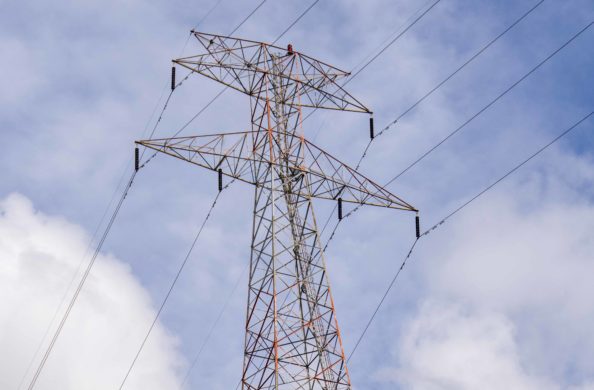 A UK government spending watchdog has questioned the value of the multibillion pound subsidies granted to the Drax power plant in North Yorkshire – and said plans to hand over billions more may not represent value for money. The government has provided about £22bn of public money to businesses and households that burn biomass pellets as fuel over the past three years, including £6.5bn for the owner of the Drax plant. The power plant, which generates about 5% of the UK’s electricity, is expected receive more than £10bn in renewable energy subsidies between 2015 and the end of 2026 – despite ongoing concerns that wood pellets are not always sustainably sourced. The Public Accounts Committee has said that biomass generators have been left to “mark their own homework” when it comes to proving that their fuel met the sustainability standards set by the subsidy scheme.
A UK government spending watchdog has questioned the value of the multibillion pound subsidies granted to the Drax power plant in North Yorkshire – and said plans to hand over billions more may not represent value for money. The government has provided about £22bn of public money to businesses and households that burn biomass pellets as fuel over the past three years, including £6.5bn for the owner of the Drax plant. The power plant, which generates about 5% of the UK’s electricity, is expected receive more than £10bn in renewable energy subsidies between 2015 and the end of 2026 – despite ongoing concerns that wood pellets are not always sustainably sourced. The Public Accounts Committee has said that biomass generators have been left to “mark their own homework” when it comes to proving that their fuel met the sustainability standards set by the subsidy scheme.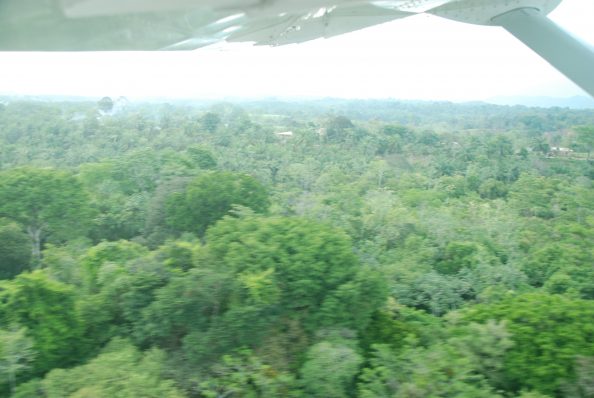 The assessment singled out Brazil and Australia, and warned a lack of rules around accounting for forests and other land-based carbon sinks meant countries could “game the system” when reporting their national greenhouse gas emissions. Scientists are still unclear about how carbon sinks might behave as the planet warms in future, and exactly how much heat-trapping carbon dioxide they might soak up from the atmosphere. But that has not stopped countries from making their own assumptions and using those numbers in their national climate plans, which are due to be finalised to 2035 before the next UN climate talks in Brazil in November. Climate Analytics, a policy institute that independently assesses these plans, said overly optimistic assumptions about how much CO2 forests might draw down was “masking the scale and pace of the fossil fuel emissions cuts needed”.
The assessment singled out Brazil and Australia, and warned a lack of rules around accounting for forests and other land-based carbon sinks meant countries could “game the system” when reporting their national greenhouse gas emissions. Scientists are still unclear about how carbon sinks might behave as the planet warms in future, and exactly how much heat-trapping carbon dioxide they might soak up from the atmosphere. But that has not stopped countries from making their own assumptions and using those numbers in their national climate plans, which are due to be finalised to 2035 before the next UN climate talks in Brazil in November. Climate Analytics, a policy institute that independently assesses these plans, said overly optimistic assumptions about how much CO2 forests might draw down was “masking the scale and pace of the fossil fuel emissions cuts needed”.